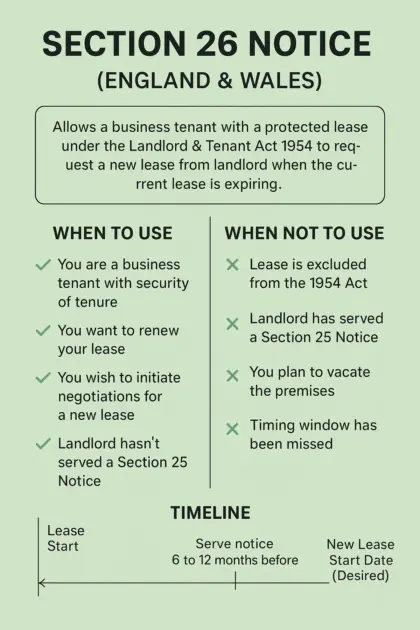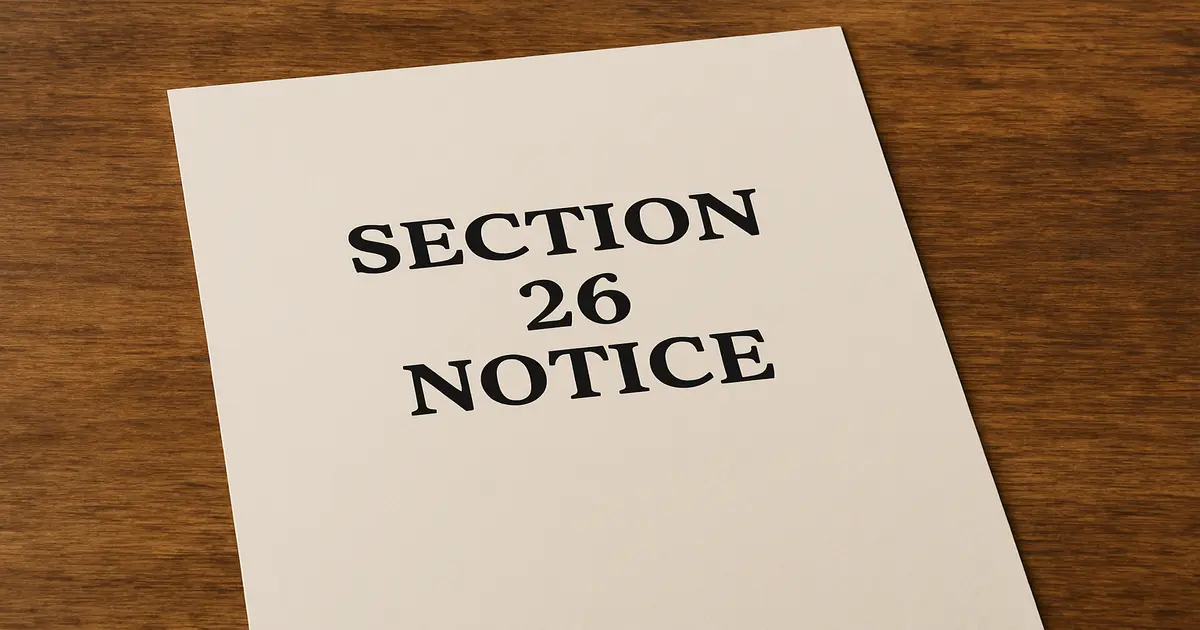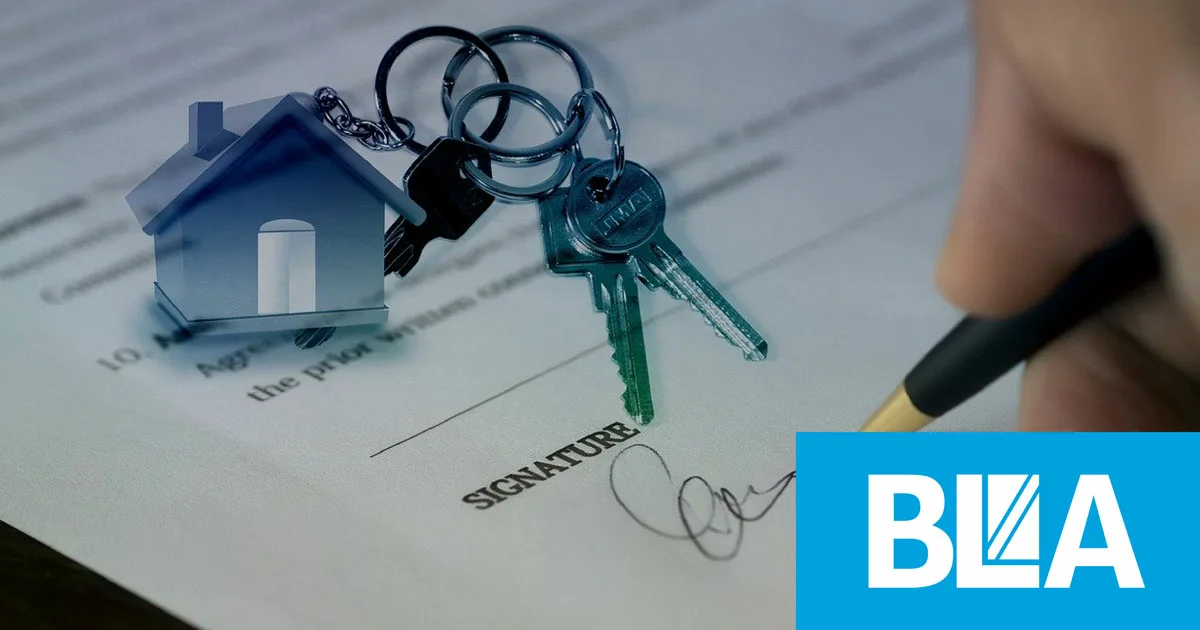Section 26 Notice (England & Wales): When to Use It and When Not To
In commercial lease agreements within England and Wales, landlords and tenants must comply with strict legal procedures when renewing or terminating tenancies.
One critical tool available to commercial tenants is the Section 26 Notice under the Landlord and Tenant Act 1954.
Understanding when to use this notice — and when not to — is vital for protecting your rights and planning ahead.
What Is a Section 26 Notice?
A Section 26 Notice allows a business tenant with a protected tenancy (under the 1954 Act) to request a new lease from the Landlord once the current lease approaches expiry.
It’s the tenant’s way of formally initiating lease renewal and securing continued occupation of the commercial premises.
You should use a Section 26 Notice when:
✅ You are a business tenant with security of tenure.
✅ You want to renew your lease and continue occupying the premises.
✅ You want to initiate negotiations with the Landlord for a new lease on potentially revised terms.
✅ The Landlord hasn’t already served you a Section 25 Notice to terminate or renew the lease.
When Not to Use a Section 26 Notice
Your lease is excluded from the 1954 Act (i.e., you have no security of tenure).
❌ The Landlord has already served you a Section 25 Notice — once that happens, you cannot use Section 26.
❌ You are not seeking a renewal or are planning to vacate the premises.
❌ You’ve missed the timing window (i.e., less than 6 months left before your lease ends).
What Happens After Serving a Section 26 Notice?
📩 The Landlord has 2 months to oppose the lease renewal (must state statutory grounds for opposition).
🤝 If not opposed, negotiations for the terms of the new lease begin.
⚖️ If no agreement is reached, either party can apply to the County Court to decide on the new lease terms.
Grounds on Which a Landlord Can Oppose
A landlord may lawfully refuse lease renewal under specific grounds, including:
- Landlord intends to redevelop the property.
- The Landlord intends to occupy the premises personally.
- The tenant has breached lease obligations (e.g., non-payment of rent).
FAQs
Can a tenant serve a Section 26 Notice if the Landlord served a Section 25 Notice?
No. Once the Landlord serves a Section 25 Notice, the tenant cannot serve a Section 26 Notice.
What happens if the Landlord doesn’t respond?
If no opposition is served within 2 months, the Landlord is considered to have accepted the lease renewal in principle.
Is legal advice required?
While not mandatory, seeking professional legal advice is strongly recommended to ensure compliance with formalities and deadlines.

Conclusion
Serving a Section 26 Notice is a powerful tool for business tenants who wish to secure a new lease under the protection of the Landlord and Tenant Act 1954.
However, it’s critical to understand the conditions, deadlines, and legal context in which this notice should be used.
Always seek professional advice when issuing or responding to a Section 26 Notice to avoid legal pitfalls and protect your commercial interests.
Useful Notice
Landlord and Tenant Act 1954 (Full Text) – Official UK legislation.
HM Courts & Tribunals: Lease Renewal Guidance – Government guide on renewing business leases.
The British Landlords Association is a national landlords association for UK landlords. It is one of the largest landlord associations in the UK. Join us now for £79.95!
Our top read blogs:
Understanding Commercial Property EICR Requirements in the UK
How to deal with Commercial Property Dilapidations UK
Is Commercial Property a Good Investment in England & Wales?
Disclaimer:
This post is for general use only and is not intended to offer legal, tax, or investment advice; it may be out of date, incorrect, or maybe a guest post. You are required to seek legal advice from a solicitor before acting on anything written hereinabove.





